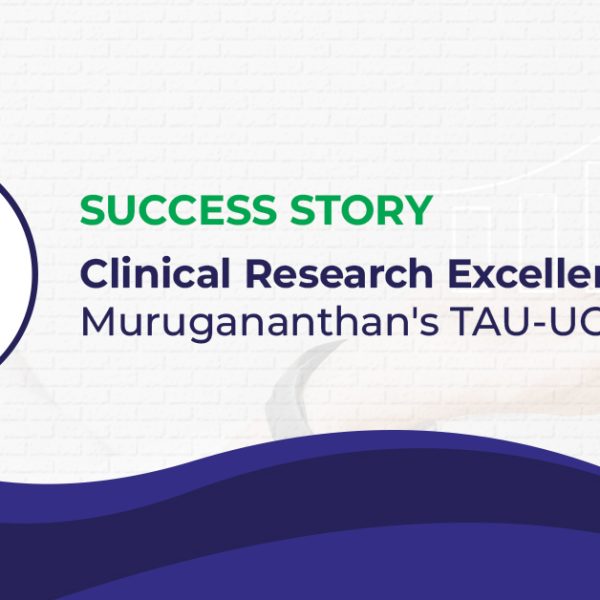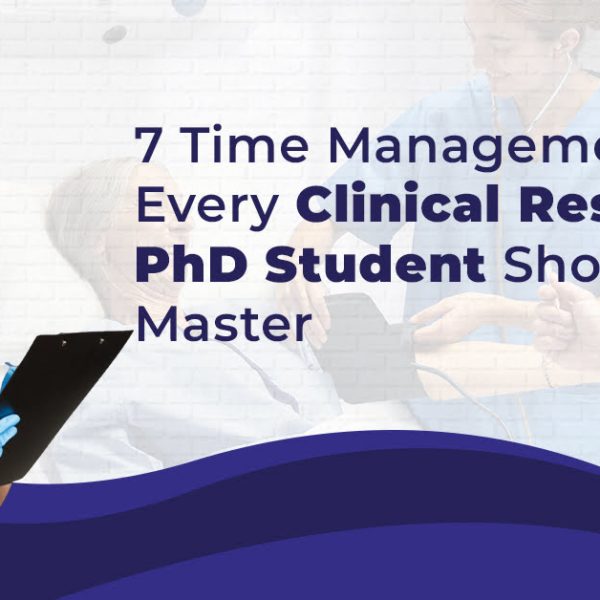Blog Summary
Embarking on a part-time PhD in Clinical Research is a strategic move for professionals balancing career growth and education. Key considerations include understanding program formats, aligning career goals, and managing time and finances. Exploring top programs, navigating admissions diligently, and embracing long-term benefits like career advancement and networking opportunities are crucial steps. Despite challenges, strategic planning, resilience, and a growth mindset empower individuals to thrive academically and professionally. Committing to a part-time PhD in Clinical Research signifies an investment in personal development and healthcare innovation, contributing to the field’s collective knowledge and advancement.
- Introduction
- Understanding the Types of PhD Programs in Clinical Research
- Key Factors to Consider Before Enrolling
- Exploring the Best Clinical Research Programs
- Admission Requirements and Process
- The Long-Term Benefits of a Part-Time PhD in Clinical Research
- Potential Challenges and How to Overcome Them
- Conclusion
- FAQ
Introduction
The decision to pursue a part-time PhD in Clinical Research is growing in popularity among professionals seeking advanced education without pausing their careers. This flexible academic pathway allows individuals to delve deeply into Research while maintaining their professional roles. However, before embarking on this significant educational commitment, It’s essential to consider a few crucial aspects. These include time commitment, financial implications, career advancements, and personal life balance. Understanding these elements can help prospective students make informed decisions, ensuring that their investment in further education leads to substantial personal and professional growth.
Understanding the Types of PhD Programs in Clinical Research
When considering a PhD in Clinical Research, it’s essential to understand the many kinds of programmes offered. Part-time PhD programs offer flexibility for working professionals, allowing them to continue their careers while advancing their education. Online PhD programs in clinical Research provide the convenience of remote learning, which is ideal for students with geographical or time constraints. Additionally, PhD clinical research distance learning options combine online coursework with occasional in-person requirements, offering a hybrid learning environment. Each format accommodates diverse student needs while maintaining rigorous academic standards, which is crucial for advancing clinical Research.
Choosing the Right Program Format
Selecting the ideal program format for your part-time PhD journey is pivotal for seamless integration into your professional and personal life. With part-time options, you can balance academic aspirations with existing commitments, fostering a harmonious blend of career growth and educational advancement. Explore various formats such as online PhD in Clinical research or distance learning, each offering unique advantages like flexibility and accessibility.

Embrace a program that resonates with your lifestyle and learning preferences, ensuring a fulfilling academic experience without compromising your current endeavours. Opting for a part-time PhD empowers you to pursue higher education at your own pace, enriching your career prospects and personal development journey.
Key Factors to Consider Before Enrolling
When contemplating enrollment in a part-time PhD program in clinical Research, several crucial factors warrant careful consideration:
1. Career Alignment
- Ensure your academic pursuits align with your long-term career objectives in the clinical research PhD programs.
- Evaluate how the program’s curriculum, research opportunities, and industry connections contribute to your professional goals.
- Seek programs that offer specialized tracks or concentrations relevant to your desired career path.
2. Time Management
- Assess your ability to balance work, study, and personal commitments effectively.
- Consider the flexibility of the program and its compatibility with your current schedule.
- Explore the institution’s time management strategies and support services to aid part-time students.
3. Financial Preparedness
- Evaluate the cost of tuition, fees, and potential expenses associated with pursuing a part-time PhD.
- Research available financial aid options, scholarships, and employer tuition reimbursement programs.
- Develop a budgeting plan to manage expenses and ensure financial stability throughout your academic journey.
Exploring the Best Clinical Research Programs
Exploring the best online clinical research programs is crucial for aspiring scholars seeking flexibility without compromising quality. Top programs offer comprehensive curricula, expert faculty, and robust online platforms. Look for institutions with accreditation, ensuring credibility and recognition within the field. Consider factors like program reputation, student support services, and opportunities for practical experience or research collaborations.
Clinical research PhD programs should provide interactive learning tools and networking opportunities to enrich your educational journey. By thoroughly researching and comparing options, you can find the perfect fit to propel your career in clinical Research forward while accommodating your busy schedule and personal commitments.
Admission Requirements and Process
Navigating the admission process for a part-time PhD clinical research requires attention to detail and preparation. Familiarize yourself with the specific requirements outlined by each program, which may include academic transcripts, letters of recommendation, and standardized test scores. Take note of application deadlines and submission procedures to ensure a smooth process.

Additionally, prepare a compelling personal statement of purpose highlighting your academic achievements, research interests, and career aspirations. By carefully adhering to admission requirements and deadlines, you can maximize your chances of securing acceptance into your desired part-time PhD program in Clinical Research.
The Long-Term Benefits of a Part-Time PhD in Clinical Research
Embarking on a part-time PhD in Clinical Research promises a multitude of enduring benefits:
Career Advancement: Graduating with a PhD amplifies your expertise, opening doors to leadership roles, research positions, and academic endeavours within the clinical research domain.
Research Contributions: Your scholarly contributions enhance the collective knowledge base in clinical research, driving innovation and advancements in healthcare practices and methodologies.
Networking Opportunities: Engaging in a part-time PhD program connects you with esteemed professionals, fostering valuable collaborations and expanding your professional network for lifelong growth and opportunities.
Potential Challenges and How to Overcome Them
Strategic planning and resilience are paramount in navigating the potential challenges of a part-time PhD program. Time constraints often pose a significant hurdle, necessitating prioritization, open communication, and effective time management strategies to maintain productivity and alleviate stress. Balancing responsibilities between work, study, and personal life requires setting boundaries, delegation, and self-care practices to prevent burnout and ensure sustained success.
Moreover, managing academic demands demands organization, proactive engagement, and seeking support from mentors or institutional resources. Embracing challenges with a growth mindset fosters a positive outlook, turning obstacles into personal and academic development opportunities.
Conclusion
Embarking on a part-time PhD journey in Clinical Research is a significant decision that requires careful consideration of various factors. Understanding the program formats, aligning career goals, managing time effectively, and preparing financially are crucial steps in ensuring a fulfilling educational experience. Aspiring scholars can embark on a path of scholarly contributions and personal growth by exploring top clinical research programs, navigating the admission process diligently, and embracing long-term benefits such as career advancement and networking opportunities.
While challenges may arise, strategic planning, resilience, and a growth mindset empower individuals to overcome obstacles and thrive academically and professionally. Ultimately, committing to a part-time PhD in Clinical Research represents an investment in both personal development and the advancement of healthcare practices, contributing to the collective knowledge and innovation in the field.













